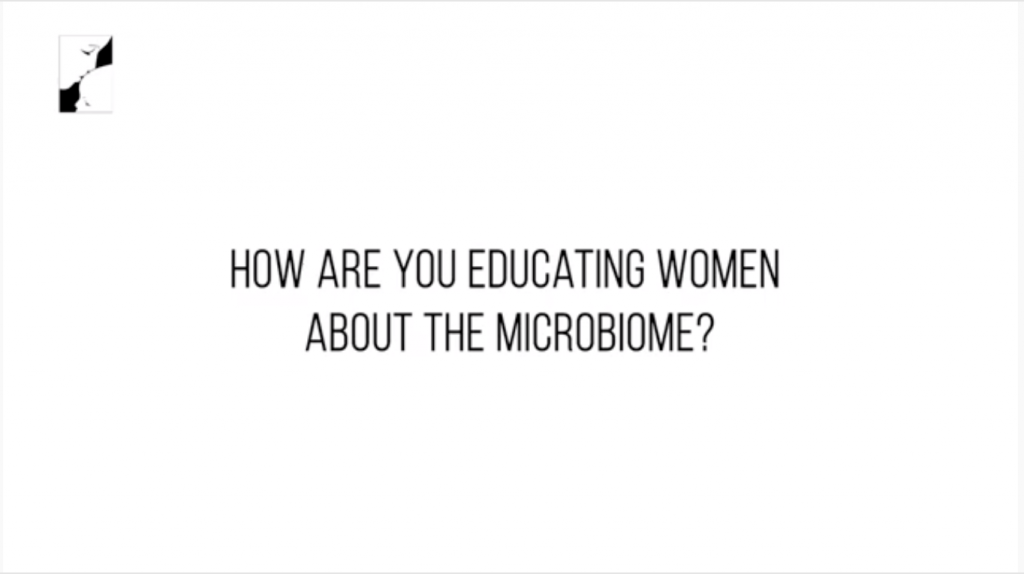
Dani has undertaken speciality training through the Royal Australian and New Zealand College of Obstetricians and Gynaecologists (RANZCOG). Under the supervision of Dr Amanda Henry and Prof Emad El-Omar, she is working on the Microbiome Understanding in Maternity Study (MUMS) trying to establish if there are causal links or associations between the action and composition of microbiome during pregnancy and adverse pregnancy outcomes.
Dani will study each woman and her baby for a year following birth. She is an enthusiastic team member and very passionate about the potential impact that this important scientific research will have on the clinical practice of obstetrics. MUMS will help inform the MothersBabies study, particularly in relation to the collection of samples from pre-pregnant, pregnant and post pregnant women and their babies.
With her daughter Abigail, Dani experienced a normal pregnancy, labour and delivery and continued to breast feed Abigail until she was 3 years old. Abigail suffers from serious anaphylactic allergies to peanuts, eggs and white fish. She also has severe eczema and asthma. Dani is hoping that MUMS may offer some clues as to why some children suffer from allergies.
Dani has conducted a review of recent literature to help the MothersBabies community understand the current evidence based science in this area.
This quarter we cover 9 topical areas where recent research has provided new insights into the microbiome and biology. The studies cover research in both humans and mice.
Dani will study each woman and her baby for a year following birth. She is an enthusiastic team member and very passionate about the potential impact that this important scientific research will have on the clinical practice of obstetrics. MUMS will help inform the MothersBabies study, particularly in relation to the collection of samples from pre-pregnant, pregnant and post pregnant women and their babies.
With her daughter Abigail, Dani experienced a normal pregnancy, labour and delivery and continued to breast feed Abigail until she was 3 years old. Abigail suffers from serious anaphylactic allergies to peanuts, eggs and white fish. She also has severe eczema and asthma. Dani is hoping that MUMS may offer some clues as to why some children suffer from allergies.
Dani has conducted a review of recent literature to help the MothersBabies community understand the current evidence based science in this area.

This quarter we cover 9 topical areas where recent research has provided new insights into the microbiome and biology. The studies cover research in both humans and mice.
1. Bacterial transfer from mother to baby and its effect on weight gain in adult life
2. Breast milk and its effect on naturally born and caesarean born offspring with reference to the influence of prebiotics
3. Gut-Brain relationships and the development of the brain and immune function in children
4. The development of allergies and food intolerances associated with interactions between the microbiota and immune system
5. Asthma links to “unhealthy” and “healthy” microbiomes and possible importance of short chain fatty acids
6. A comprehensive review of gut disorders and illnesses associated with a “damaged” microbiome and the roles of antibiotics, probiotics, prebiotics, polyphenols and faecal microbiota transplantation (FMT – “poo” transplants from healthy donors to unhealthy recipients)
7. Lifestyle driven illnesses like obesity, insulin resistance, diabetes, blood pressure and cardiovascular issues and obesity – called “metabolic syndrome” – are investigated in a large population study in China in relation to changes in economic growth, diet and nutrition.
8. Household cleaning products and their relationship with the development of excessive weight gain in childhood.
9. “Electricity” producing bacteria – interesting future research work into these amazing bugs
Brief Summaries of the papers.
1. Intergenerational transmission of bacteria during childbirth initiates the development of the intestinal microbiota in mammalian offspring. In a rat model, mothers (dams) fed their offspring (pups) that were treated with antibiotics from birth until the age of weaning the pups never came into contact with the antibiotics but still lead to a low microbial diversity which led to weight changes persisting into adult life (REF 1).
2. Continuing in the light of breastmilk and its impact and import, a human study, showed the oligosaccharide component of breastmilk, which are poorly digested by the infant, exist as a prebiotic and differ in concentration between mothers2. It compared the concentrations between mothers and took into account the mode of birth of their infants. What they showed was that the usual caesarean birth microbiota patterns where less apparent when mother secreted the oligosaccharide, and the microbial communities of the offspring born to mothers who didn’t secrete this oligosaccharide could then potentially benefit from corrective supplementation (REF 2).
3. Wang et al investigated the influence the microbiota has on the development of the brains of our infants in their first 2-3 years of life. Suggesting that modifications in nutrition in early life may modulate the microbiota and ultimately brain development and function3. Exploring a review of the knowledge that communication between the microbiota, gut and brain is driven by hormonal and neural regulation alongside the immune system and metabolic pathways, and identifying the need for further research (REF 3).
4. Food allergies and intolerances are also increasing in Australia. New research looking to the mechanisms of food sensitivities have once again demonstrated that the gut microorganism play a role in the development of food intolerances. Gut microbiota can degrade or modify immunogenic food antigens or allergens4 and are able to increase or decrease the immune response they trigger. This paper also showed that the development of food sensitivities are dependent on intestinal barrier dysfunction and that this process is driven by the immune system (REF 4).
5. Other disease such as asthma are also being explored. The different gut microbial signatures were clearly different between the 36 asthma versus the 185 healthy controls. Once again a loss of diversity with a depletion in Faecalibacterium prausnitzii, Sutterella wadsworthensis and Bacteroides stercoris and over representation of Clostridiums with Eggerthella lenta (REF 5). Going further into functional analysis of the microbiome and the products that microbes produce there appears to be an important link to short chain fatty acids5 in asthma and other conditions.
A picture of the importance of the Microbiome in Pregnancy.
The ecosystem of pregnancy, the microbiome and diseases associated with dysbiosis

6. When it comes to modification of the microbiome; a recent review published in Gut illustrated the current knowledge of a range of gut disorders with relation to the microbiome, but really highlighted the latest and most relevant evidence relating to antibiotics, probiotics, prebiotics, polyphenols and faecal microbiota transplantation. Three ‘P’s’ for gut health: probiotics, prebiotics and polyphenols (REF 6).
7. A large population based study in China looked at the increasing prevalence of the metabolic syndrome (for example obesity, and diabetes) and its association with economic development, lifestyle transition and the gut microbiota. What was revealed was there was increase in metabolic syndrome with increased economic status which also led to an increase in fruit and vegetable consumption and fewer grains. Interestingly, a prolonged sedentary lifestyle was an important factor identified in gut dysbiosis and increasing metabolic syndrome prevalence (REF 7).
8. Another recent paper by Tun et al studied 757 infants looking at the impact of household cleaning products on the microbiome and hence the health of the children followed through the Canadian Healthy Infant Longitudinal Development (CHILD) birth cohort. They showed that exposure to household disinfectants was associated with higher BMI at age 3, mediated by gut microbial composition at age 3-4 months (REF 8).
9. And, something intriguing and just for fun, exciting new microbiome research has shown that some microbes even produce electricity! (REF 9).
We do need to explore this complex web at the core of what it is to be human and develop the sound Australian scientific basis for understanding, modification, and intervention in order to prevent the diseases of our time for our mothers, mothers to be and their children.
Until the next electric update.
References:
1. Tulstrup MV-L, Roager HM, Thaarup IC, et al. Antibiotic treatment of rat dams affects bacterial colonization and causes decreased weight gain in pups. Communications Biology. 2018;1(1):145.
2. Korpela K, Salonen A, Hickman B, et al. Fucosylated oligosaccharides in mother’s milk alleviate the effects of caesarean birth on infant gut microbiota. Scientific Reports. 2018;8(1):13757.
3. Wang S, Harvey L, Martin R, et al. Targeting the gut microbiota to influence brain development and function in early life. Neuroscience & Biobehavioral Reviews. 2018.
4. Caminero A, Meisel M, Jabri B, Verdu EF. Mechanisms by which gut microorganisms influence food sensitivities. Nature Reviews Gastroenterology & Hepatology. 2018.
5. Wang Q, Li F, Liang B, et al. A metagenome-wide association study of gut microbiota in asthma in UK adults. BMC Microbiology. 2018;18(1):114.
6. Marchesi JR, Adams DH, Fava F, et al. The gut microbiota and host health: a new clinical frontier. Gut. 2016;65(2):330-339.
7. He Y, Wu W, Wu S, et al. Linking gut microbiota, metabolic syndrome and economic status based on a population-level analysis. Microbiome. 2018;6(1):172.
8. Tun MH, Tun HM, Mahoney JJ, et al. Postnatal exposure to household disinfectants, infant gut microbiota and subsequent risk of overweight in children. Canadian Medical Association Journal. 2018;190(37):E1097.
9. Light SH, Su L, Rivera-Lugo R, et al. A flavin-based extracellular electron transfer mechanism in diverse Gram-positive bacteria. Nature. 2018:1-5.


This website and the information it contains is not intended as a substitute for professional consultation with a qualified practitioner.
© MothersBabies Ltd. View our Terms of Use & Privacy Policy
Search MothersBabies
Looking for something in particular? Find it here using our search query function. Simply type in your keyword and click the icon.
Recent Articles






Join Us